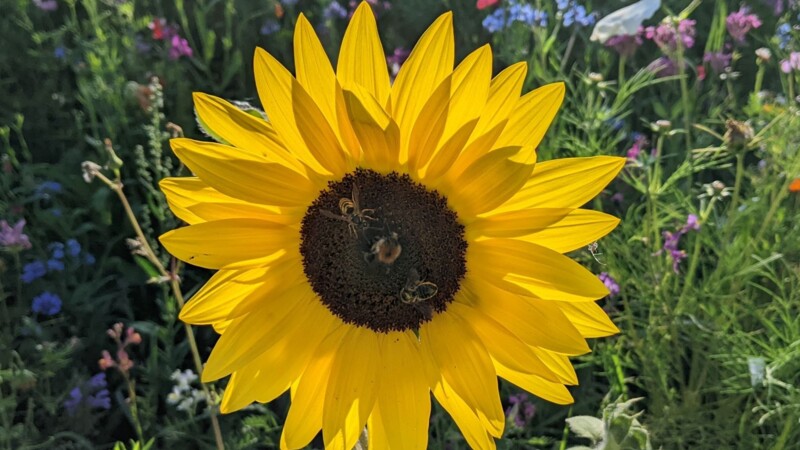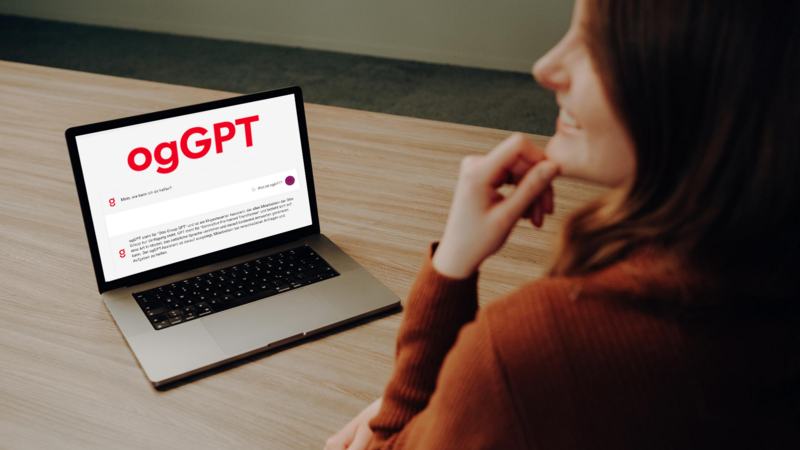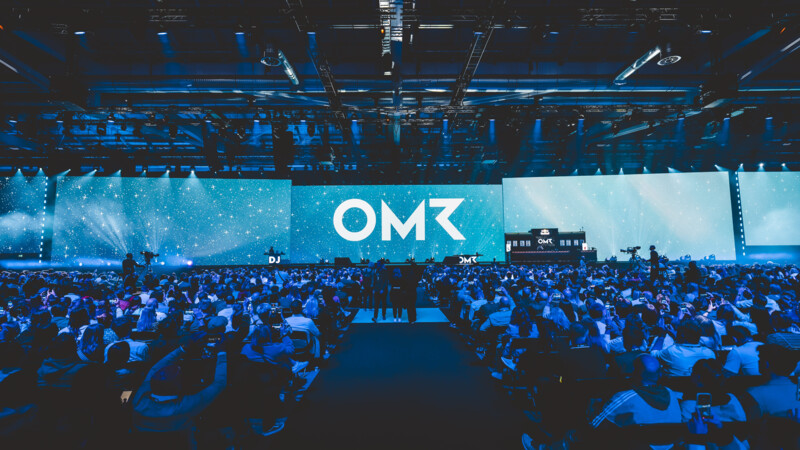Wiebke Nadzeika, co-founder of the Hamburg-based OneGuide start-up which sells AI-generated travel guides as personalised audio guides, remarked: "Things in our company are no longer man-made. The AI is just as good as a human author or narrator, if not better." The first audio apps were created by human authors. User feedback helped determine the style and structure of the latest app. "We trained our AI model based on those results," said Nadzeika, who was previously Head of Video & New Business at Gruner + Jahr. OneGuide uses the ElevenLabs text-to-speech model for speech output. Access to verified sources is limited to prevent the AI model from hallucinating i.e., inventing false information that apparently fits the required profile better. AI developers are trying to come up with solutions to this quandary. Yet, despite this teething problem, the technology is opening up entirely new possibilities, she noted, adding: "AI allows us to scale our business model. That's not possible manually."
Generative AI is making waves and delivering increasingly convincing results. However, this dynamic has not won over the Hamburg-based publisher Carlsen. The publisher, which is part of the Swedish media company Bonnier, “will not be publishing any AI-generated books”, according to Dr Markus Dömer, Head of Business Development at Carlsen. His remarks came during nextMedia.Hamburg’s recent AI-themed festival held in “Space” in Hamburg’s Speicherstadt. AI continues to produce texts and images independently and is spreading to more and more industries. And the use of ChatGPT is booming with more to follow quickly. A survey by Deloitte AI found that 79 per cent of respondents expect generative AI to lead to significant changes in their companies in less than three years. Dömer noted: "AI is a huge topic throughout the Bonnier Group and holds huge potential for strategy processes in particular, which is economically rewarding. Yet, AI-generated books do not have the same potential as the book sector tends to be idealistic.”
Is AI better than humans?
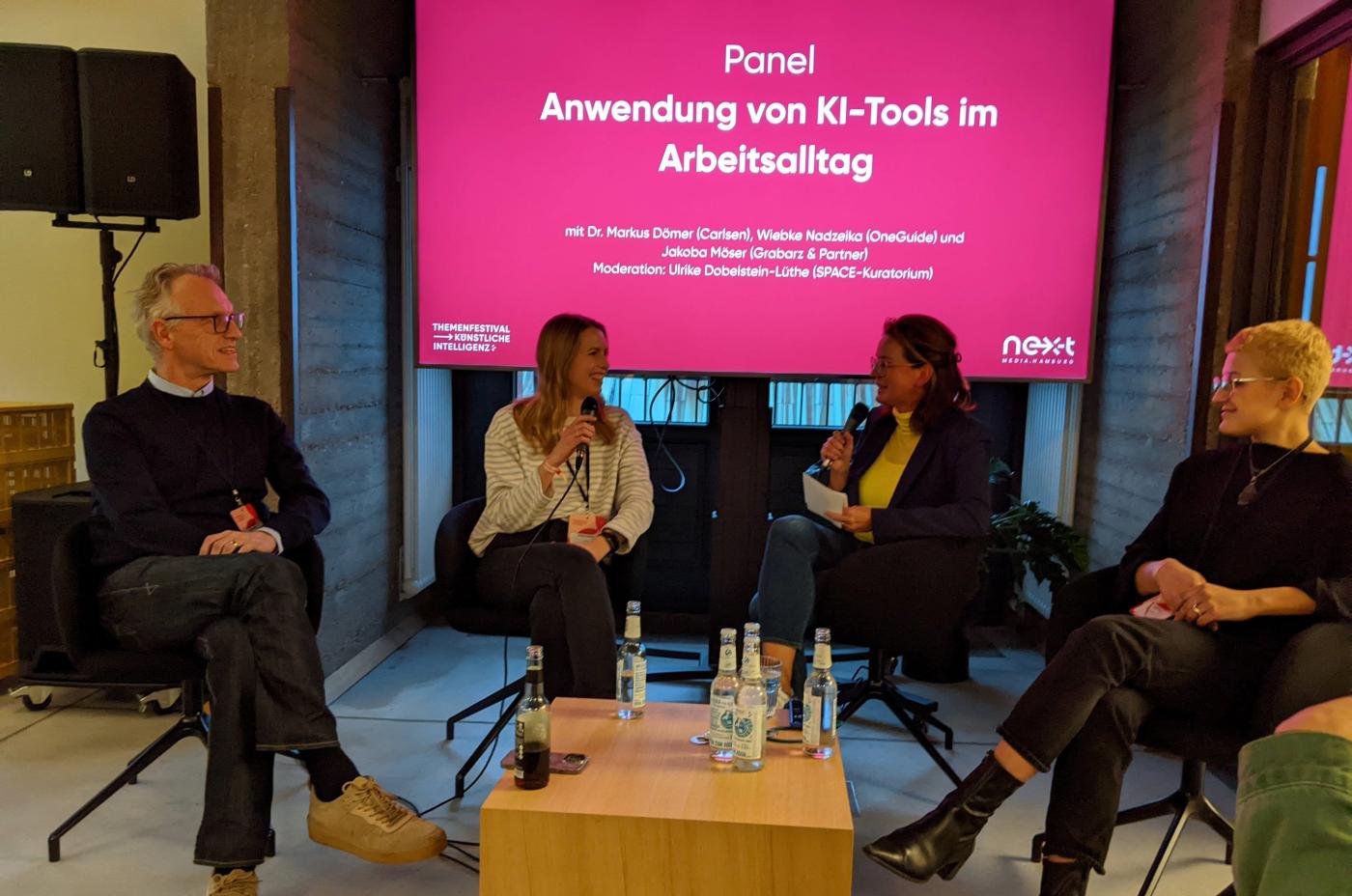
AI proving real creative partner
"AI is a great, fast tool," enthused Jakoba Möser, Junior Strategist at Grabarz & Partner. And it saves money. A podcast for Lidl, written, spoken, visualised and produced entirely by AI, is the cheapest podcast ever produced by the creative agency, Möserm who is also part of the cross-agency AI Arnie working group, pointed out. The agency tells clients about what is created internally using AI. An interdisciplinary team is aiming to test the highly-diverse potential of AI in the advertising industry. "It ranges from the AI-generated initial idea, which is then visualised by the technology, to the creation of image and video material, which saves costs for shoots. AI is a real creative partner."
Symbiosis of man and machine
The festival was not without heated debates. Isabelle Ewald, Senior Consultant Technology Strategy & Governance at the Otto Group, and Ole Reißmann, Head of Artificial Intelligence at the SPIEGEL Group, highlighted the role of human creativity in the age of ChatGPT and the like. "People will always be needed in future," Ewald said citing exclusively human traits such as cultural sensitivity, diplomacy and understanding. However, Reißmann countered: "Young people increasingly prefer to confide in chatbots rather than people." Teaching professions should be reserved for humans, according to Ewald. Yet, Reißmann prefers robot teachers without annoying mood swings. Regardless of the divergence, both expect a symbiosis of man and machine in future. "We should embrace this symbiosis and shape it actively," Ewald noted.
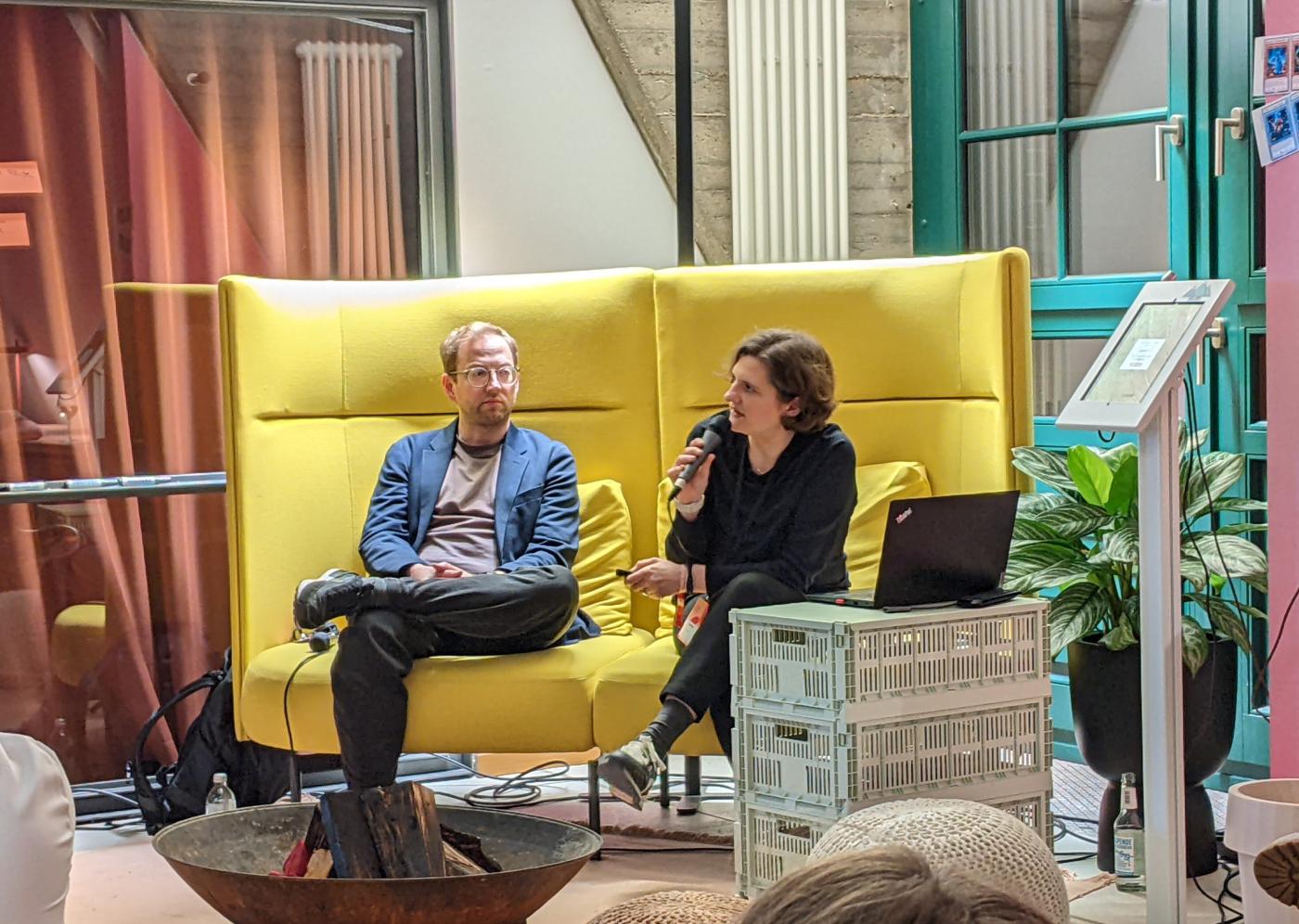
AI reporters and editors at "Der Spiegel"?
And just how far has artificial intelligence advanced into journalism? The online journalist's profession still seems relatively secure as automation has come to only 29 per cent so far, according to a Job Futuromat in the German Employment Agency's Institute of Labour Market and Occupational Research. Reißmann opined: "I don't think AI will start writing articles for 'Der Spiegel' weekly." Subscribers pay for human reporters and editors. "As soon as the term 'generated by AI' appears under articles, the willingness to pay will decline," Reißmann predicted.
World's first AI-based lifestyle magazine
Things differ vastly at Panta Rhai in Hamburg. Founded by Jörg Salomon among others, the company has published what is perhaps the world's first AI-based lifestyle magazine. And the feedback from the trade press and AI experts is great. AI tools such as ChatGPT and Midjourney are getting better all the time, said Salomon. "At first, we had to deal with six or seven fingers and the eye area didn't look authentic either. But now the results are really convincing." Salomon encourages people to give the technique a try. His credo is essentially: "You will not be replaced by artificial intelligence. A person who uses artificial intelligence will." Panta Rhai's business model goes beyond that of a publisher, as the company offers consulting services in the field of AI, builds customised GPTs, i.e., chatbots that are tailored to specific customers' needs, and also conducts research.
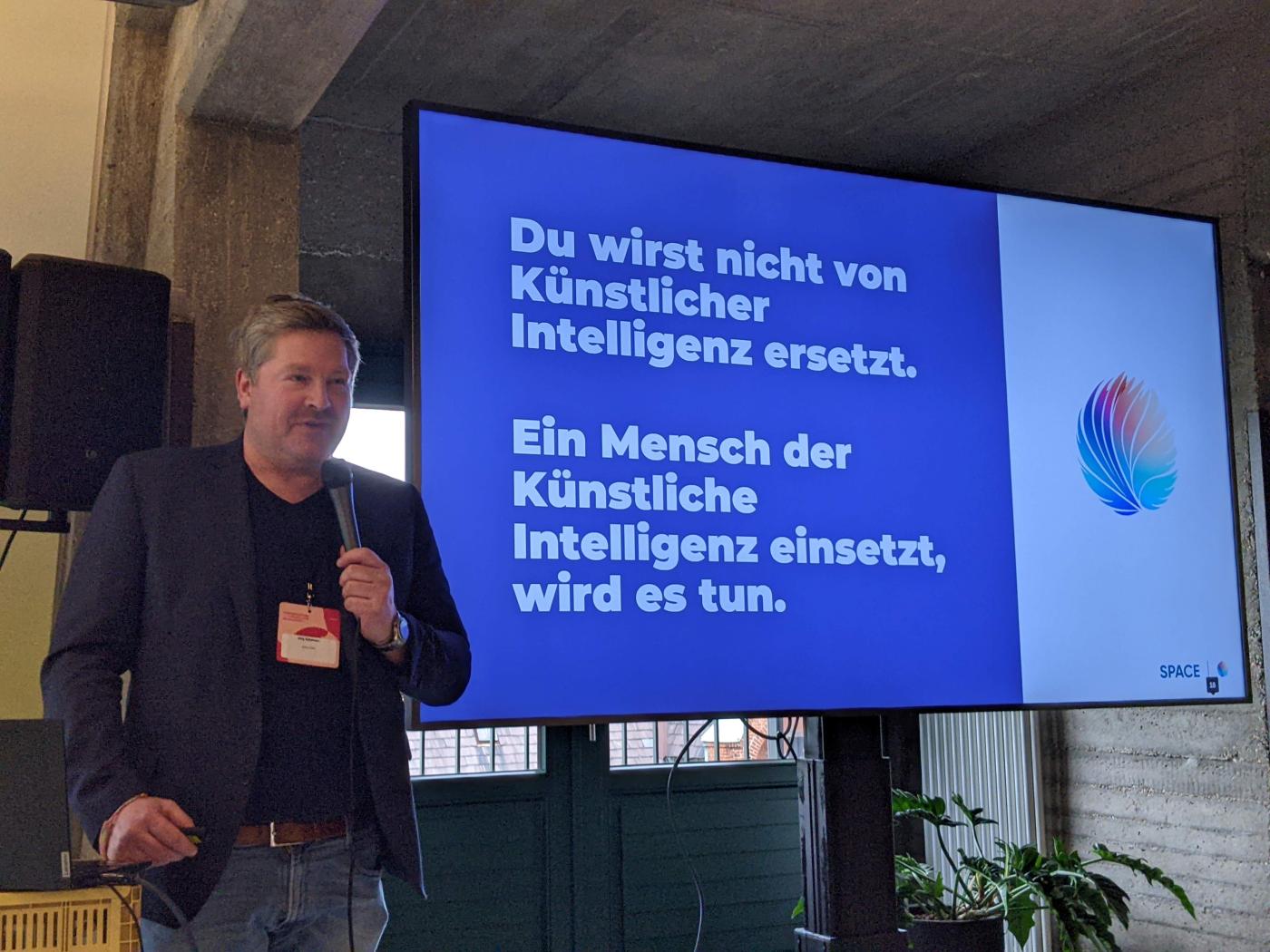
Trust now pivotal
"We are probing how different target groups respond to AI content," Salomon said. Everything hinges on trust. "That's why it is important to ensure data protection, but also ethics and to avoid bias." Progress is also being made in this respect. The EU is currently working on an AI law that will set standards for the safe and responsible use of AI. However, the technology can be quirky, Salomon noted. "Sometimes we get strange answers. AI has good and bad days." And that too is very human.
ys/pb
Read the other parts in our AI series:
1) Hamburg clearly an AI hotspot, says Alois Krtil
2) AI Summit 2023 focuses on doom or boom aspects
5) Europe to rival U.S. and China with 'Responsible AI"?
6) AI rescuing island radio amid lack of presenters
Sources and further information
More
Similar articles
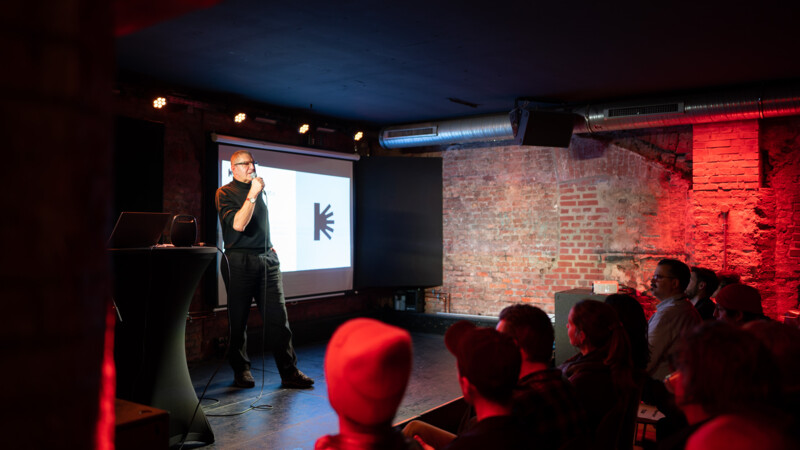
Creatives to sharpen focus on sustainability and creative AI
